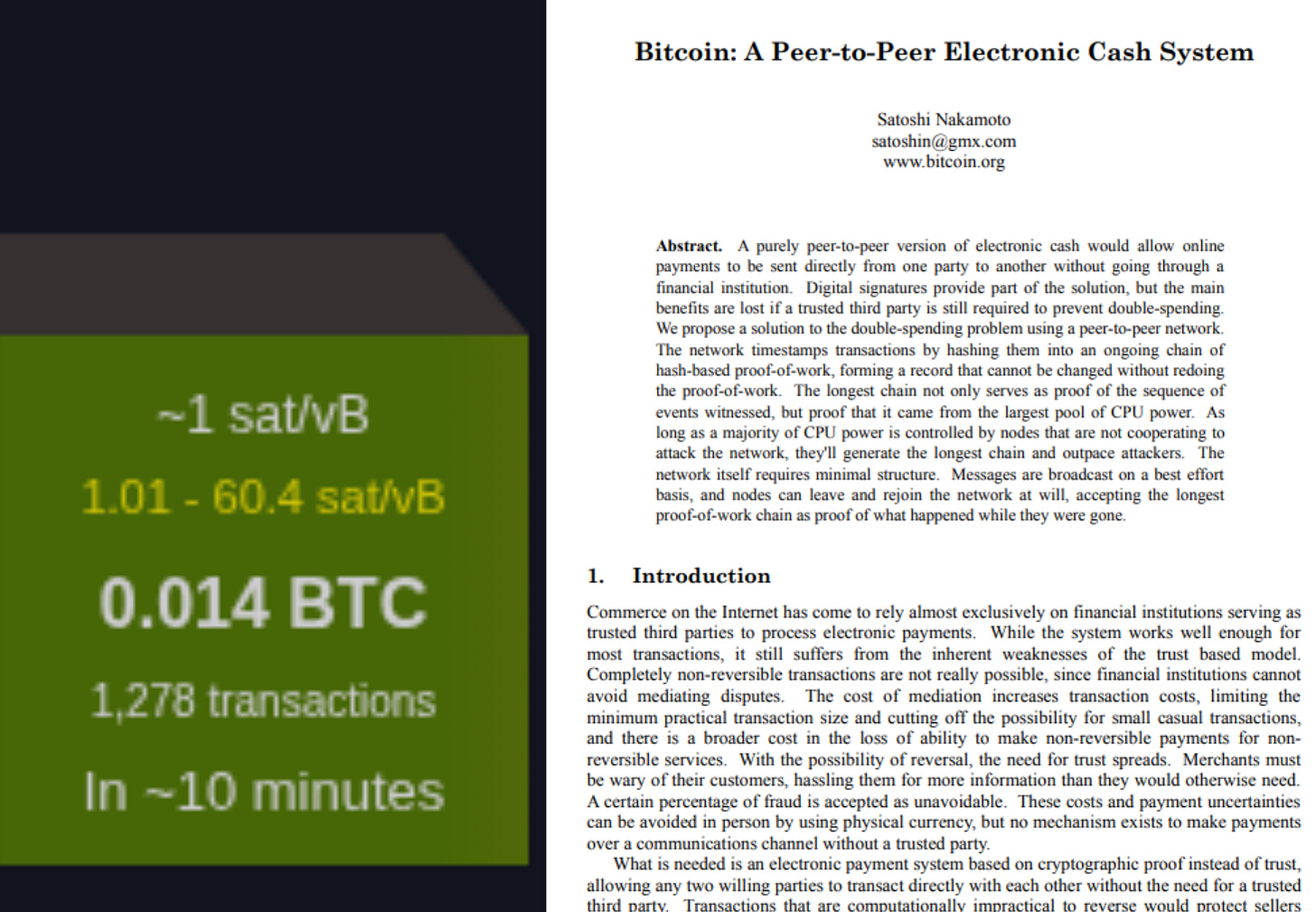Bitcoin: A moral imperative
What Bitcoin is for me and why it should matter for everyone
For many, including myself, the creation and printing of money represents a profound ethical problem that is becoming really unacceptable. This perspective posits that entities which monopolize, print, and allocate capital on behalf of others commit actually a moral violation. Such actions are seen to deplete the opportunities, time, and energy of future generations, leading to a level of indebtedness that is now impossible to overcome for western people. These behaviors concentrate power in the hands of a few persons, who are often corrupt, and encourage wars and oppression of people all over the world. In this article I am taking in consideration the ideas from Gigi and Jack Mallers who were extremely inspirational for me all along my path to Bitcoin.
So we must ask ourselves what Bitcoin really is and how we feel it is different from the traditional economy we have seen until now. What Bitcoin can do for the humanity and what we can do to raise awareness of Bitcoin among people.
In response to this perceived ethical dilemma exposed above, Bitcoin has emerged as something far beyond mere open source computer code or a digital asset. Instead, it is increasingly understood as a moral code. This redefinition positions Bitcoin as a fundamental philosophical framework for economic interaction. And we know that economic interactions are the foundation of our individual freedom and the free market.
The core tenets of Bitcoin's moral code are remarkably simple and direct and can be resumed like these:
• do not inflate
• do not confiscate
• do not counterfeit
This foundational ethical stance is what makes Bitcoin, for many, very ethical and moral. The underlying premise is that everyone operates under the same rules and has the same access to the system. Bitcoin is open to anyone and no one can be prevented from using it. The difference from the traditional economic system is obvious.
Ultimately, for me, Bitcoin is a moral idea and a philosophy. It is an idea expressed in open source and collaborative code that operates as a network that is realized as an asset (cit). This profound shift in understanding signifies that what has been learned in Bitcoin transcends technical specifications; it delves into the realm of ethical governance of monetary systems. It is an ethical revolution which is going to fix issues in the modern age.


